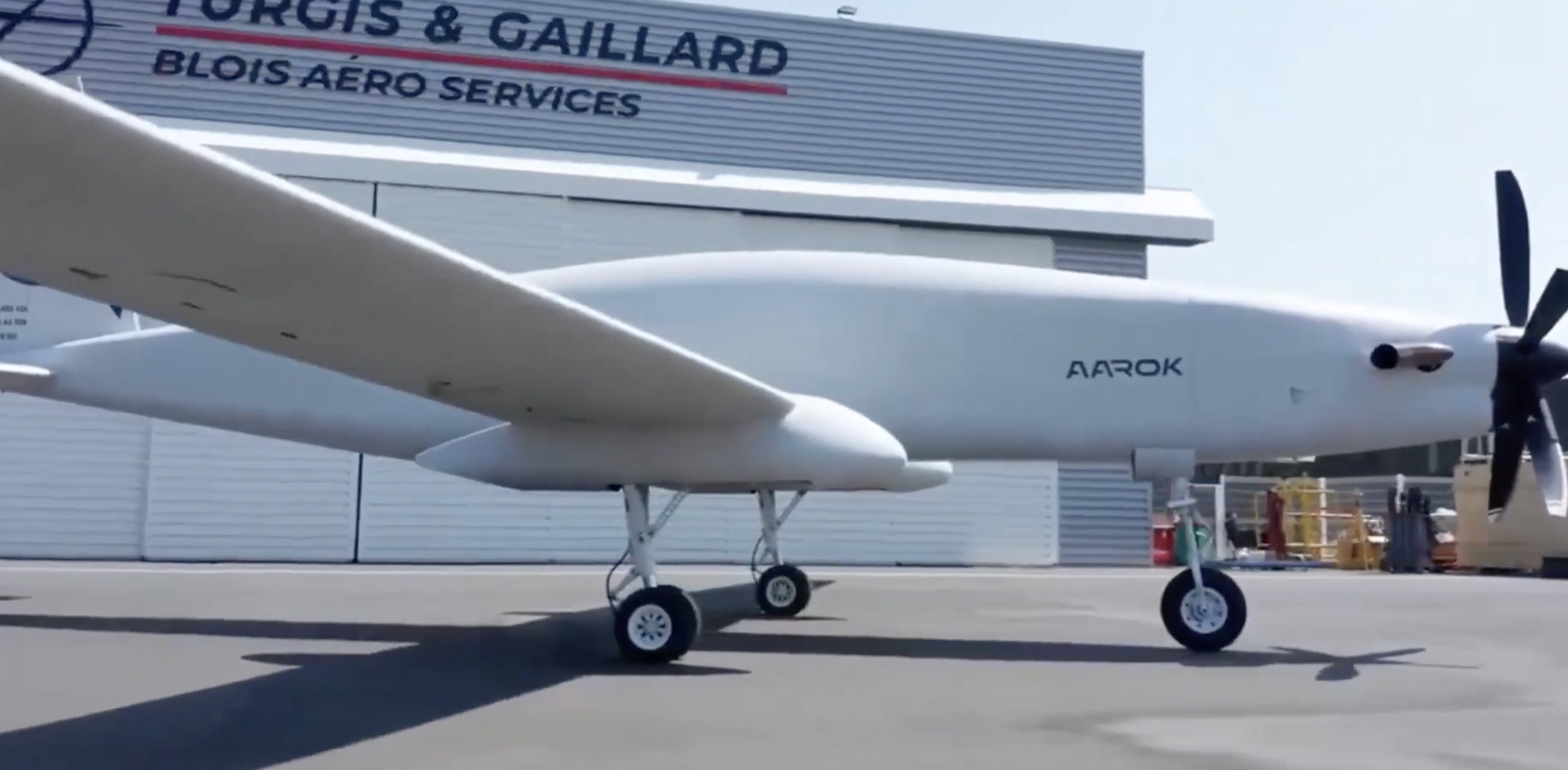By Pierre Tran
Paris – Airbus is taking more time to decide on the early stage of design for a European medium-altitude, long-endurance drone, with the industrial partners looking for a good fit with specifications, Guillaume Faury, chief executive of the aircraft builder, said Feb.15.
“The preliminary design review (PDR) is a very important milestone of each and every program, when we freeze the general design, meaning all specifications can be reached based on this general design,” he told a press conference on Airbus’s 2023 financial results.
“This has been postponed,” he said. “We took more time – we have more challenges to come to this convergence between specification and design.”
Challenges, a French business magazine, reported Feb. 14 the extra time spent on preliminary design on the unmanned aerial vehicle (UAV), dubbed Eurodrone, had pushed back the critical design review, which had been due to be completed later this year.
The French media report said it drew on a German defense ministry report published at the end of January, with the Berlin authorities pointing up a perceived lack of coordination between Airbus and Dassault Aviation, which led to the project running late.
Airbus Defence and Space is the prime contractor, with the subcontractors Airbus DS in Spain, Dassault in France, and Leonardo in Italy.
France, Germany, Italy, and Spain back the project with a €7.1 billion ($7.6 billion) budget. The launch order, signed Feb. 24 2022, was for 20 systems, comprising 60 aircraft and 40 ground stations, shared between the partner nations.
There was no problem in working with the industrial partners, Faury said.
“There are four partners in the program,” he said. “Airbus is the integrator.
“There are challenges in this program, like on all programs in…selection of the design to come to a convergence,” he said. “There is no communication issue with any of the different partners. But there are challenges in coming to convergence.
“The communication is between industrial partners and we move forward on the Eurodrone.”
Dassault, which will supply the flight control system, was waiting for Airbus to supply specifications needed, the media report said, drawing on the German report.
Dassault was not available for comment.
Certification of Engine
Occar officials met Feb. 7 their counterparts of the European Union Aviation Safety Agency (EASA) to launch the certification for the Eurodrone engine, to be supplied by Avio Aero, the Italian unit of General Electric Aerospace, a U.S. company.
“The Eurodrone will integrate the Catalyst engine produced by AVIO AERO, fully ITAR free and produced in Europe, that is planned to receive a full civilian certification released by EASA,” Occar, the European arms procurement agency, said.
ITAR refers to international traffic in arms regulations, the U.S. rules which give Washington power to withhold authorization when American-built components are used in European systems sold to foreign clients.
Airbus DS picked the Avio engine over a rival offer from Safran, a French aero-engine builder, sparking lively debate in France.
Safran, meanwhile, will supply the undercarriage and its Euroflir 610 electro-optical system for the drone.
Meanwhile, Japan has joined as observer on the Eurodrone project, Occar said Nov. 30 in a statement.
Japan had made its request for observer status on Sept. 7, the agency said, pointing up “Japan’s willingness to explore opportunities to collaborate on subjects of common interest and its recognition of the importance of cooperation between Japan and Europe.”
Japan has also signed up as partner nation on the global combat air program (GCAP), joining Britain and Italy in designing and building a stealth fighter jet, due to fly in 2035. That global project grew out of an Anglo-Italian plan to build the Tempest new generation fighter.
“European MALE RPAS (remotely piloted aircraft system) will be a key enabler for future operations ensuring to European nations state of the art capabilities. It will be a key pillar in any FCAS to improve the collaborative combat capabilities,” Occar said on its website.
France, Germany, and Spain are backing a future combat air system, which includes a new fighter jet, competing with the Tempest.
The twin-engined, turbo-prop Eurodrone is due to fly in 2030.
Aarok Attack Drone
Meanwhile, Turgis & Gaillard, a privately owned company, plans to launch flight tests of its prototype unmanned combat aerial vehicle, dubbed Aarok, in the first half of the year, Piloter, a specialist magazine reported.
The Aarok, which drew media attention last year at the Paris air show, has been modified with a temporary manned cockpit for the flight tests, the report said.
“We will also test the sensors, communications, and then the air-to-ground capability,” said chief executive Patrick Gaillard, the report said. Two test pilots, former service personnel, will fly the aircraft in the test program, due to last this year.
The test flights will be fairly basic, with the company looking for a launch order to finance the flights needed for full certification.
The French company signed an agreement with Antonov last year, with the Ukrainian aircraft builder acting as its local partner if the Ukrainian authorities ordered the combat drone.
There was interest in the drone’s delivery of communications, intelligence, surveillance, and reconnaissance, and the capability to fit the AASM powered smart bomb, the report said.
The medium-sized company was among firms which accompanied the French armed forces minister, Sébastien Lecornu, on his visit to Kyiv last September.
Faury, formerly head of Airbus Helicopter, previously worked in the Direction Générale de l’Armement procurement office, where he was flight-test engineer on the Tiger attack helicopter.
The war in Ukraine has pointed up the importance of low cost and readily available drones, with the Ukrainian forces looking to improvised aerial vehicles and sea-going vessels to hit Russian targets on the land and the water.
Airbus reported 2023 adjusted operating profit of €5.8 billion, up four percent from the previous year, and sales of €65.4 billion, up 11 percent.


